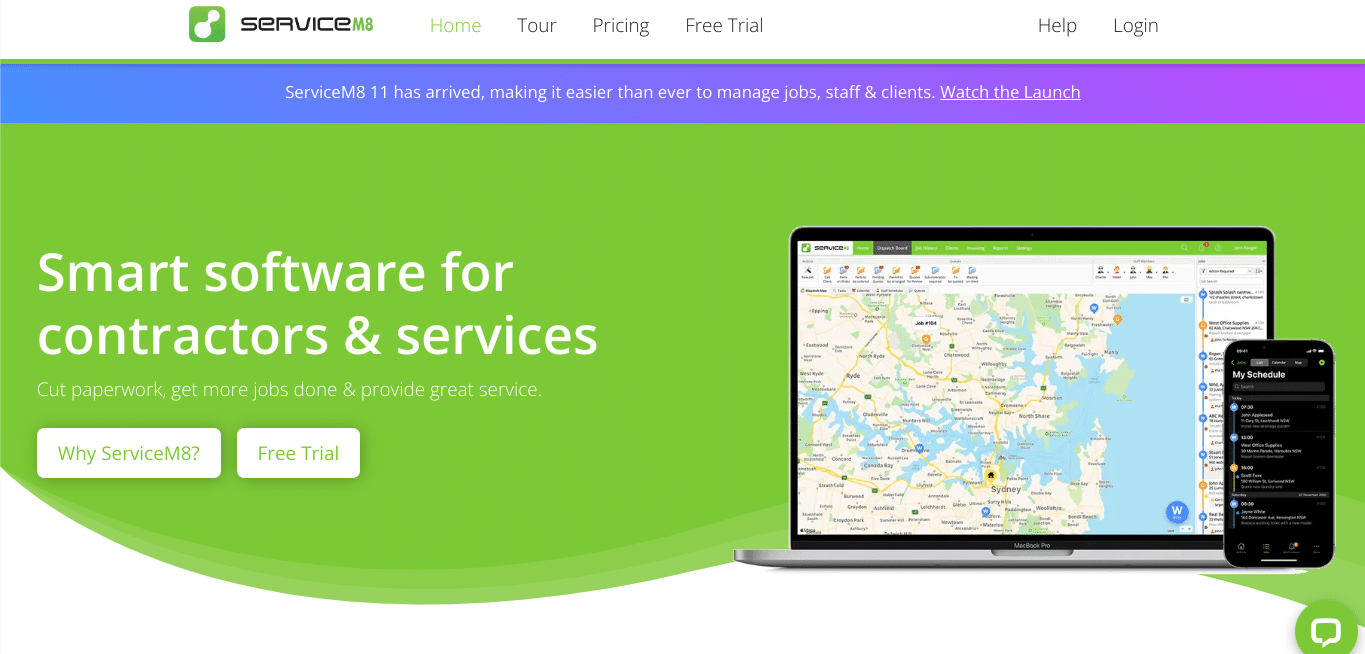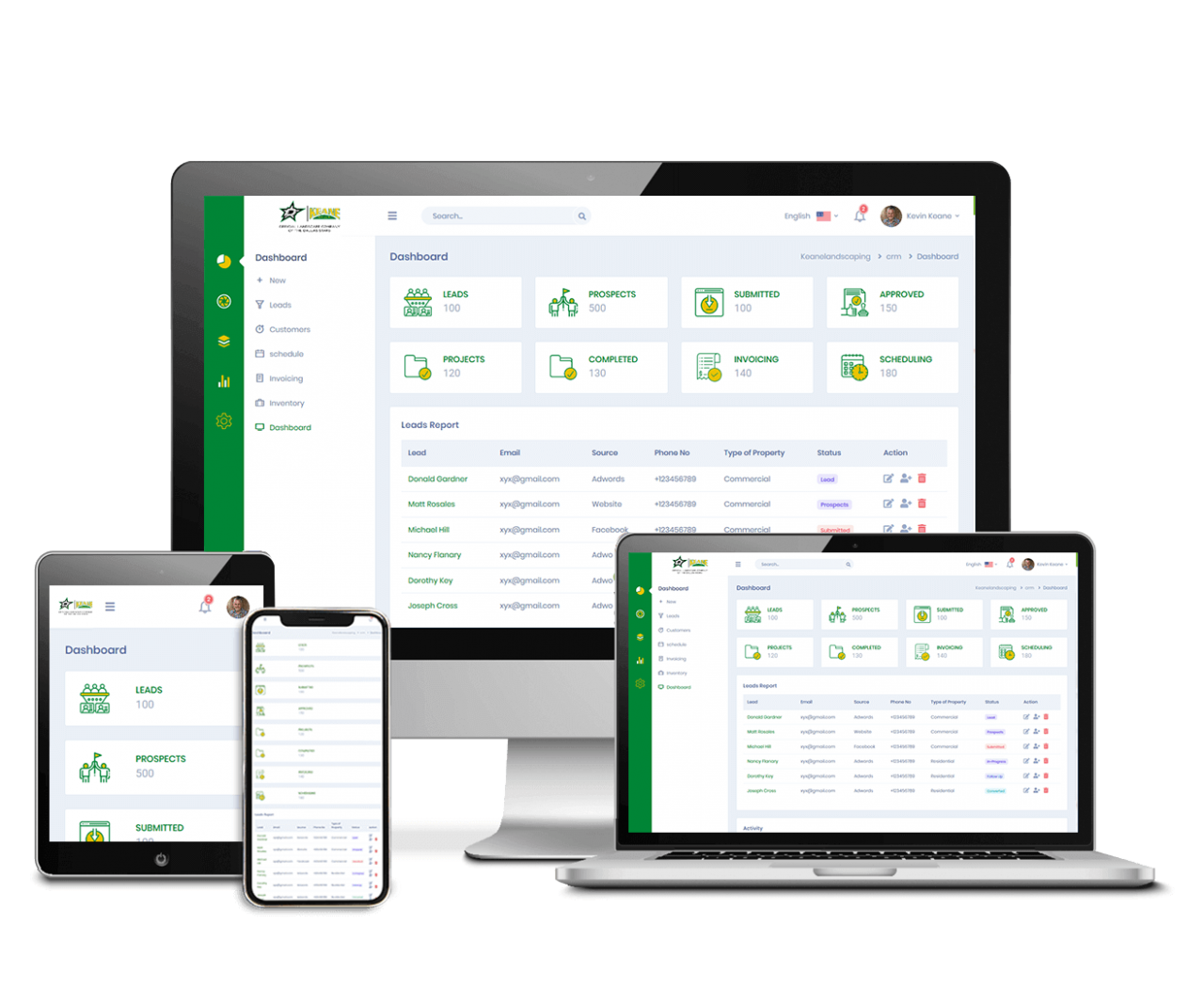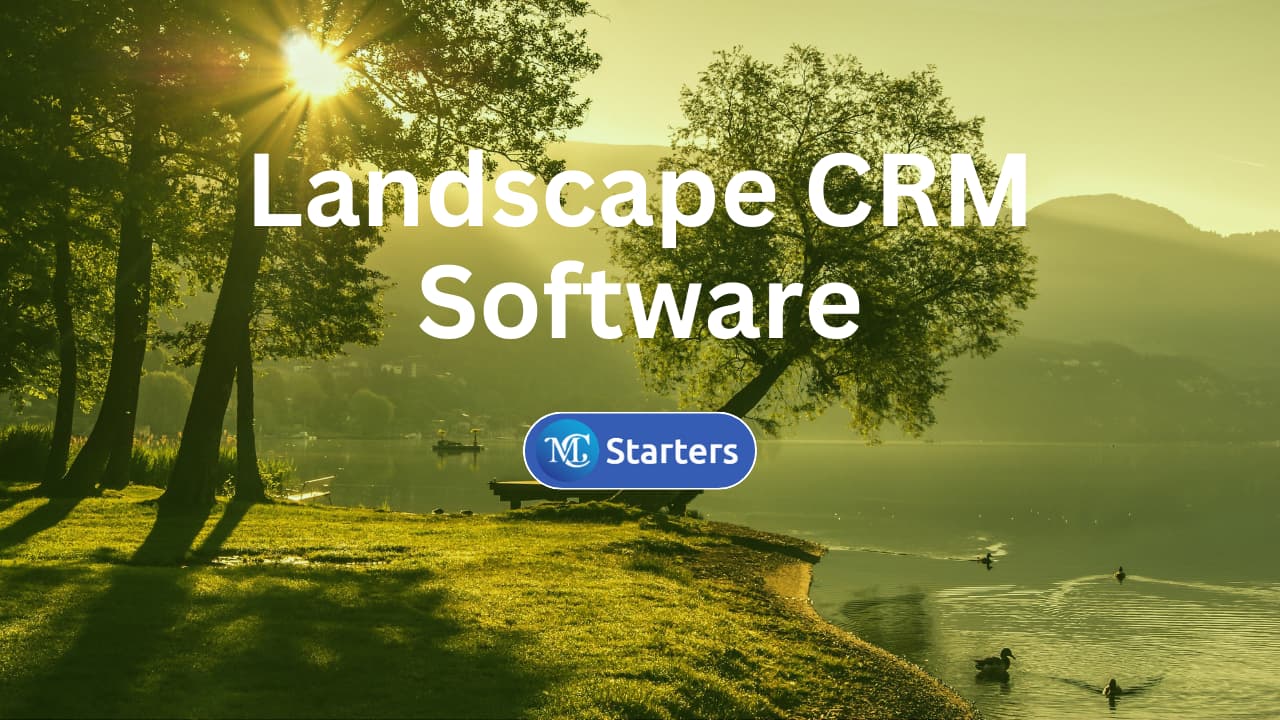In the competitive landscaping industry, embracing the best CRM for landscaping can revolutionize your business operations. With the right CRM, you can streamline processes, enhance customer relationships, and drive growth like never before.
From small-scale landscaping companies to large-scale contractors, this article delves into the key factors to consider when choosing a CRM, explores the top CRM systems tailored for landscaping businesses, and provides practical implementation tips to maximize your ROI.
Introduction
Landscaping CRM, short for Customer Relationship Management, is a software solution designed specifically for businesses in the landscaping industry. It assists companies in managing customer interactions, streamlining operations, and optimizing their overall performance.
This article aims to provide an in-depth analysis of the various CRM options available for landscaping businesses. By evaluating their key features, benefits, and suitability for different business needs, we aim to identify the best CRM for landscaping professionals.
Factors to Consider When Choosing a CRM for Landscaping: Best Crm For Landscaping

Selecting the ideal CRM for your landscaping business requires careful consideration of several key factors. These include the size and complexity of your operations, the specific needs of the landscaping industry, your budget and available resources, and the level of integration you require with other software.
Business Size and Complexity
The size and complexity of your landscaping business will significantly influence your CRM requirements. Smaller businesses with straightforward operations may find that a basic CRM system with core features like contact management, scheduling, and invoicing is sufficient. In contrast, larger businesses with multiple teams, complex projects, and extensive customer bases will need a more robust CRM with advanced capabilities such as project tracking, resource management, and reporting.
Specific Industry Needs
The landscaping industry has unique requirements that a CRM should address. Look for a CRM that offers features tailored to your industry, such as:
- Job costing and profitability tracking
- Equipment and inventory management
- Integration with design and estimating software
- Support for multiple locations and crews
Budget and Resources
The cost of a CRM system can vary widely depending on the features and capabilities it offers. Determine your budget and consider the resources you have available to implement and maintain the CRM. Consider not only the upfront cost but also the ongoing costs associated with training, support, and upgrades.
Integration with Other Software
If you use other software applications in your landscaping business, such as accounting software, project management tools, or marketing automation platforms, it’s essential to choose a CRM that integrates seamlessly with these systems. Integration can streamline your workflows, improve data accuracy, and enhance overall efficiency.
Top CRM Systems for Landscaping

Choosing the right CRM system for your landscaping business is crucial for streamlining operations, managing customer relationships, and growing your business. Here’s a comparison of leading CRM systems tailored to the specific needs of landscaping companies:
The table below provides an overview of the features and pricing of top CRM systems for landscaping:
CRM Comparison Table
| Feature | Salesforce | HubSpot | Zoho CRM | Pipedrive | Keap |
|---|---|---|---|---|---|
| Contact Management | Yes | Yes | Yes | Yes | Yes |
| Lead Management | Yes | Yes | Yes | Yes | Yes |
| Opportunity Tracking | Yes | Yes | Yes | Yes | Yes |
| Project Management | Yes | Yes | Yes | Yes | Yes |
| Invoicing and Billing | Yes | Yes | Yes | Yes | Yes |
| Mobile App | Yes | Yes | Yes | Yes | Yes |
| Pricing | Starting at $25/user/month | Starting at $45/user/month | Starting at $12/user/month | Starting at $12.50/user/month | Starting at $79/user/month |
Case Studies and Testimonials

Real-world examples of successful CRM implementations in the landscaping industry provide valuable insights into the benefits and return on investment (ROI) that businesses can achieve.
Landscaping companies that have effectively implemented CRM systems have reported numerous advantages, including improved customer relationships, streamlined operations, and increased revenue.
Benefits and ROI Achieved
- Enhanced customer satisfaction:CRM systems enable landscapers to track customer interactions, preferences, and communication history. This allows them to provide personalized service, resolve issues promptly, and build stronger relationships with their clients.
- Increased sales and revenue:CRM systems help landscapers identify sales opportunities, track leads, and manage quotes and proposals. By automating these processes, businesses can improve their sales efficiency and close more deals.
- Optimized operations:CRM systems streamline scheduling, dispatching, and invoicing processes. This reduces administrative overhead, improves communication between teams, and allows landscapers to focus on delivering high-quality services.
- Improved project management:CRM systems provide landscapers with a central platform to manage projects, track progress, and communicate with clients and contractors. This enhances collaboration, reduces delays, and ensures projects are completed on time and within budget.
- Measurable ROI:Many CRM systems offer reporting and analytics capabilities that allow landscapers to track key metrics and measure the impact of their CRM investment. This data can be used to justify the cost of the system and demonstrate its value to the business.
Implementation and Best Practices
Implementing a CRM system in a landscaping business requires careful planning and execution. By following a step-by-step guide and adhering to best practices, you can ensure a successful implementation that optimizes your operations and enhances customer relationships.
The key to a successful CRM implementation lies in data management, lead generation, and customer relationship management. By effectively managing your data, you can gain valuable insights into your customers’ needs and preferences. This information can then be used to generate targeted leads and nurture customer relationships, ultimately driving business growth.
Step-by-Step Implementation Guide, Best crm for landscaping
- Define your goals and objectives:Clearly Artikel the specific outcomes you want to achieve with your CRM system.
- Select the right CRM software:Research and compare different CRM systems to find one that meets your specific needs and budget.
- Customize your CRM:Tailor the CRM system to your business processes and workflows to ensure it aligns with your operations.
- Integrate with other systems:Connect your CRM with other software tools, such as accounting or marketing automation, to streamline data flow and improve efficiency.
- Train your team:Provide comprehensive training to your staff on how to use the CRM effectively.
- Monitor and evaluate:Regularly track key metrics to measure the success of your CRM implementation and make adjustments as needed.
Best Practices for Data Management
- Maintain accurate and up-to-date data:Regularly clean and verify your customer data to ensure its accuracy.
- Segment your customers:Divide your customers into groups based on demographics, preferences, or behavior to tailor your marketing and sales efforts.
- Use data analytics:Leverage data analytics tools to gain insights into customer trends, preferences, and pain points.
Best Practices for Lead Generation
- Create valuable content:Develop informative and engaging content that attracts potential customers and establishes your business as a thought leader.
- Utilize social media:Engage with potential customers on social media platforms to generate leads and build relationships.
- Run targeted advertising campaigns:Use online advertising platforms to reach specific audiences with tailored messages.
Best Practices for Customer Relationship Management
- Provide excellent customer service:Respond promptly to inquiries, resolve issues efficiently, and go the extra mile to exceed customer expectations.
- Personalize communications:Tailor your marketing and sales messages to each customer’s individual needs and preferences.
- Build strong relationships:Nurture customer relationships by regularly checking in, providing valuable resources, and offering personalized recommendations.
Conclusion
To select and implement the best CRM for your landscaping business, carefully consider the factors discussed in this guide. Assess your business needs, research the available options, and seek recommendations from industry peers. Once you’ve chosen a CRM, follow best practices for implementation and ensure ongoing optimization.
Remember, a CRM is an investment that can significantly improve your business operations and drive growth.
Take the next steps towards choosing and implementing the best CRM for your landscaping business. Schedule a demo with the top CRM vendors, request references, and conduct thorough research. By following these steps, you can ensure that you select the right CRM to meet the specific needs of your business and maximize its benefits.
Summary
Choosing and implementing the best CRM for landscaping is a strategic investment that empowers your business to reach new heights. By leveraging the power of technology, you can optimize your operations, nurture customer relationships, and position your landscaping business for long-term success.
Answers to Common Questions
What is a CRM for landscaping?
A CRM (Customer Relationship Management) system specifically designed for landscaping businesses helps manage customer interactions, streamline operations, and enhance communication.
How can a CRM benefit my landscaping business?
CRMs offer numerous benefits, including improved customer communication, automated lead generation, enhanced project management, and increased profitability.
What are the key factors to consider when choosing a CRM for landscaping?
Factors to consider include business size, industry-specific needs, budget, and integration capabilities.
What are some of the top CRM systems for landscaping businesses?
Leading CRM systems for landscaping include Salesforce, HubSpot, Zoho CRM, Pipedrive, and Keap.
